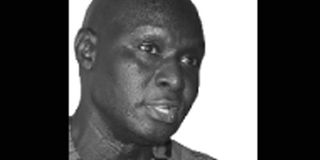Why NRM decentralisation doesn’t serve Ugandans

Olara Otunnu
UPC
As of now there are 112 districts – and still counting. By the time the NRM came to government 25 years ago there were only 33 districts. The policy then was a unitary republican dispensation. Now it is a quasi-unitary one whose object is to serve one man – President Yoweri Museveni.
The proliferation of districts has become a circus. Many of those districts are not in a position to deliver services to the people as hyped. Their creation has become a political gimmick to make political constituencies and presumably create jobs for the local people. The need for effective service delivery, as a central point of their creation, has been abandoned in favour of patronage and farce.
The result of this frenzy is that these districts cannot serve without the Central Government support and cannot even form statutory committees. The localized “civil service” does not have expertise to carry out technical and skilled jobs.
When the UPC forms the next government, it will restructure the districts to make them viable entitites and cut down the huge public expenditure in the district administrations.
Decentralisation was originally set up as a system of governance to institute viable units; to deliver services to the people and bring governance close to the people. The emphasis was supposed to be on the viability of the governance entity in terms of technical services; health, education, road construction and maintenance, etc, and adequacy of personnel to form statutory committees.
The central government was supposed to ensure that the necessary infrastructure in the area – hospitals, essential roads and schools are in the area before giving the status of a decentralised district.
As a start, there was supposed to be pilot decentralized districts to be closely monitored before being granted full status. When political passions and greed took over, political favours came in, and then the original intentions were thrown overboard. The favours were in the form of establishing jobs for the NRM “cadres” who have undergone political indoctrination, cynically referred to as: “The National School for Political Education” at Kyankwanzi. The greed is to “share” the “national cake” from the centre to the cadres.
In actual fact, what takes place is that the money sent from the central government as grants to the districts, is meant for the cadres to return to the people in the centre who gave them the favours of appointing them to those jobs, in the first place. Of course in the process, the cadres, too, steal the “crumbs form the table”.
These jobs are all to be found in the establishment of the Resident District Commissioner’s (RDC) office and its appendages. As a representative of the president in the district, it is incumbent upon the RDC to marshal all the money sent to the district for the top people in the ministries, which money then finds its way to State House.
That is the main reason corruption cannot be stopped, even if the small people in the National Agricultural Advisory Services (NAADS), or the health services, for instance, are arrested and prosecuted. They are tight-lipped because they cannot reveal the final destination of the money. The formation of the districts then is not to serve the people.
The other reason why the numerous districts are useful is during the bogusly-hyped democratic elections. It makes it easy to rig by setting up polling stations that cannot be easily traced as they are too numerous for the opposition parties to monitor. Only the NRM is in the position to do so while abusing state funds for its own interests.
UPC Spokesman, Prof. Edward Kakonge contributed this article in consultation with party leader Olara Otunnu.
[email protected]




